A 400-year-old fantasy house with moat, four-poster beds and a 'magic' swimming pool that converts into a ballroom
The majestic Ludstone Hall is one of Shropshire's greatest privately-owned country estates — and it's now looking for a new owner. Penny Churchill looks inside.
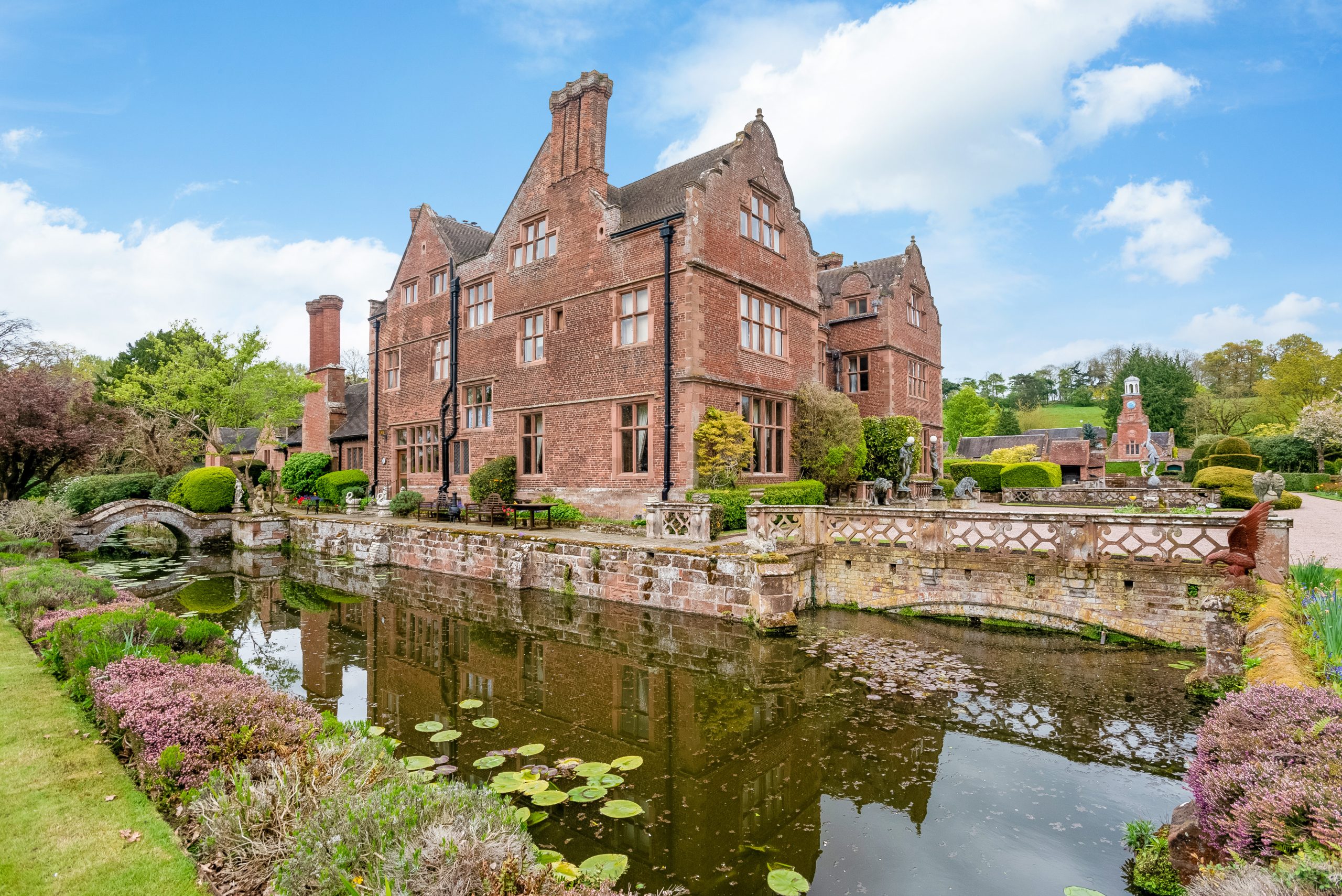

Look after the pennies and the pounds look after themselves, we all got told by our grandmothers. She was right, but what she neglected to add was that if you look after the pounds, the multi-million fortunes will look after themselves.
That, at least, is the lesson demonstrated by the life and career of the late Keith Smith, co-founder of the Poundland chain. Keith and his son Steve set the company up in 1990, eventually building it into a national chain and making their fortunes. By 1997, the success was great enough that Keith and his wife Maureen were able to do exactly what we'd do if enormous wealth came our way: buy a stunning old country house with a intricate rooms, four-poster beds, endless space, Versailles-style gardens and — ideally — a moat.
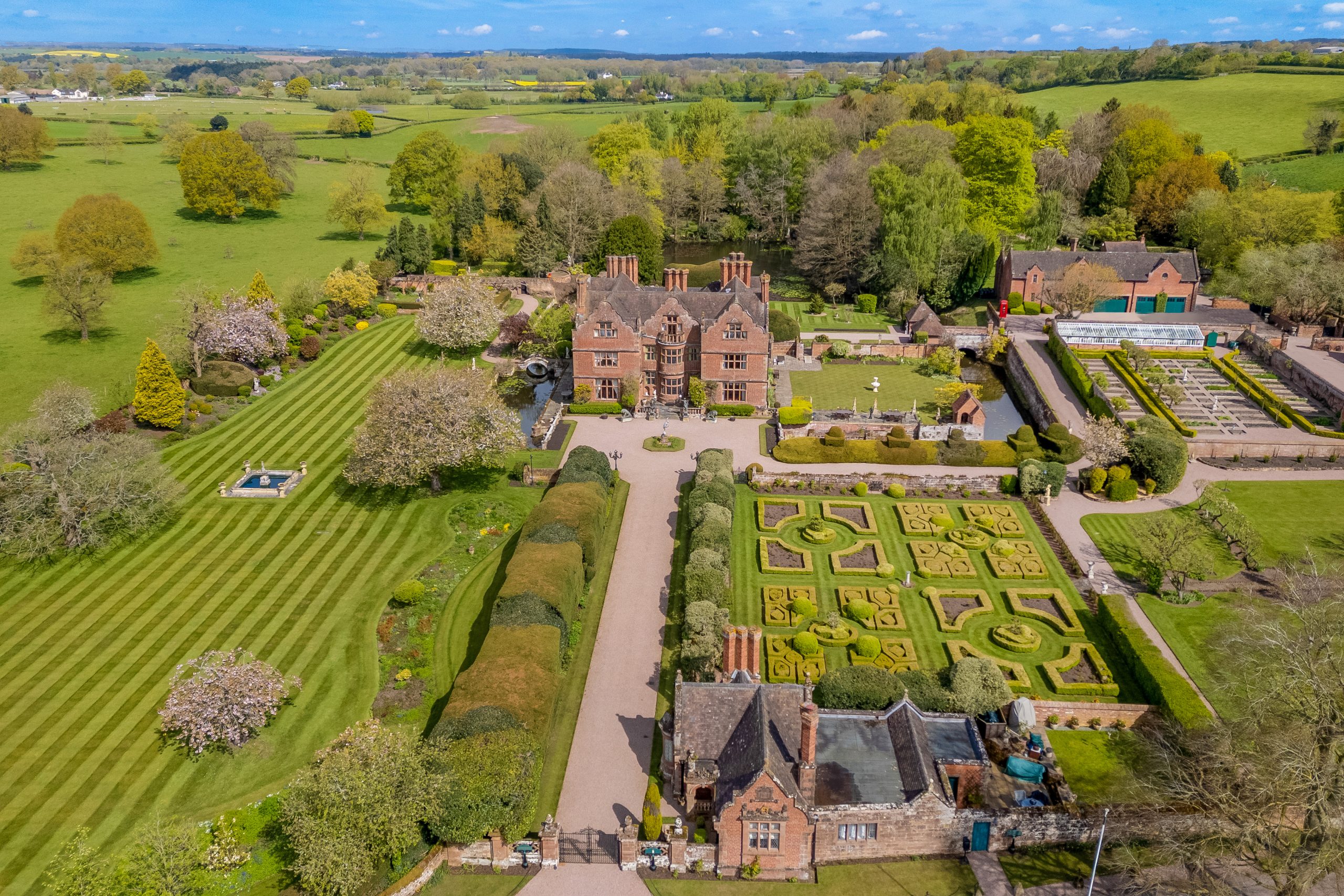
The home they chose to tick all those boxes is Ludstone Hall, a wonderful 400-year-old house and 178 acre estate. Sadly, Keith died in 2022, and this majestic property is seeking a new owner; the asking price is £7,750,000 via joint agents Stuart Flint of Fisher German in Worcester and Peter James of Peter James Property in Wolverhampton.
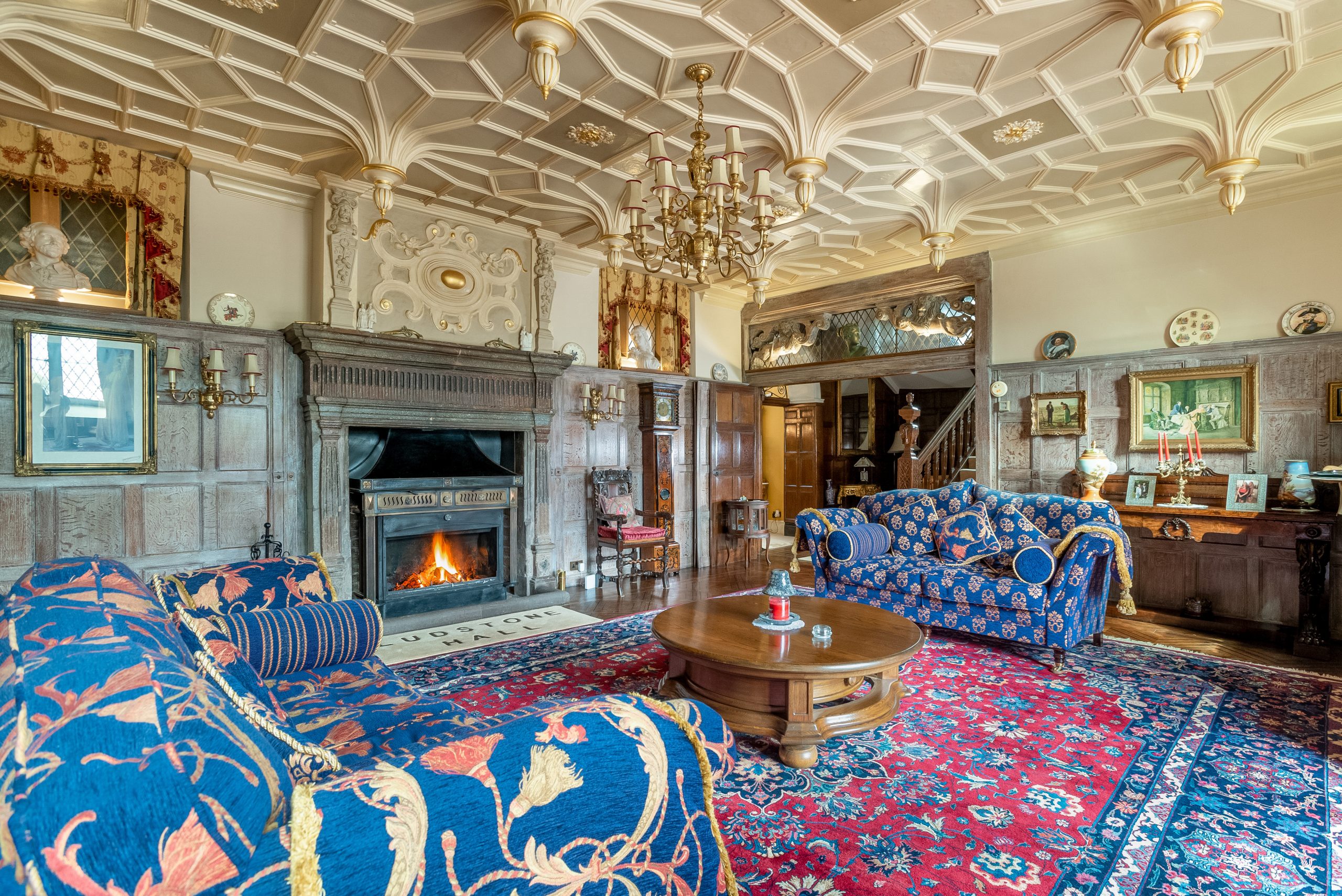
The focal point of the estate is the wonderfully symmetrical main house, which towers over its moat and offers more than 8,000sq ft of sumptuous accommodation on three floors.
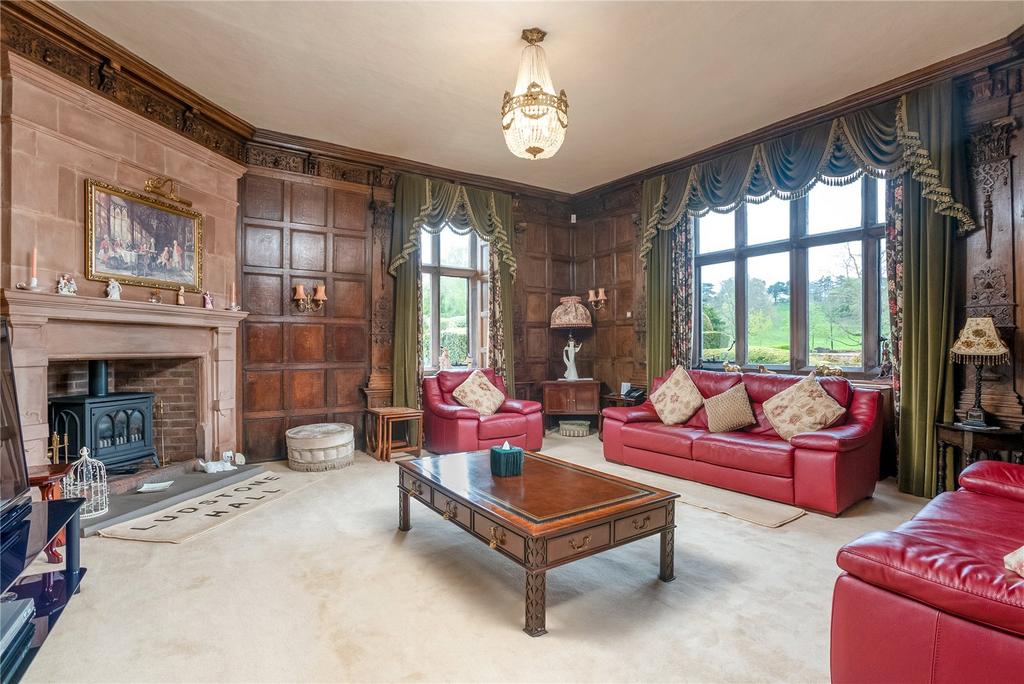
There are four grand reception rooms, nine bedrooms and seven bath/shower rooms, plus extensive domestic offices and cellarage.
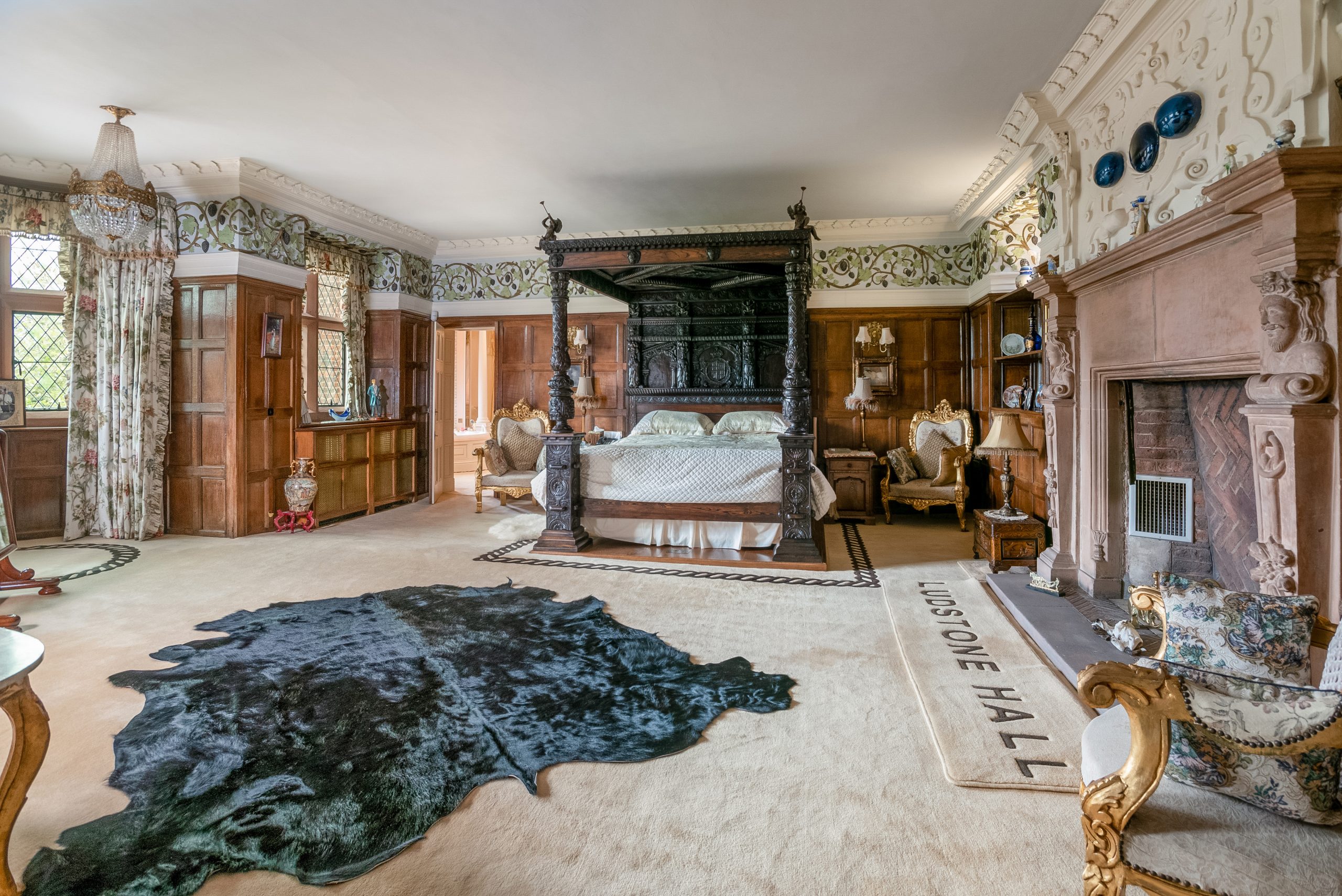
Highlights include the vast, brilliantly lit reception hall; the oak-panelled staircase hall dominated by a wide, 17th-century oak staircase with elaborately carved newel posts.
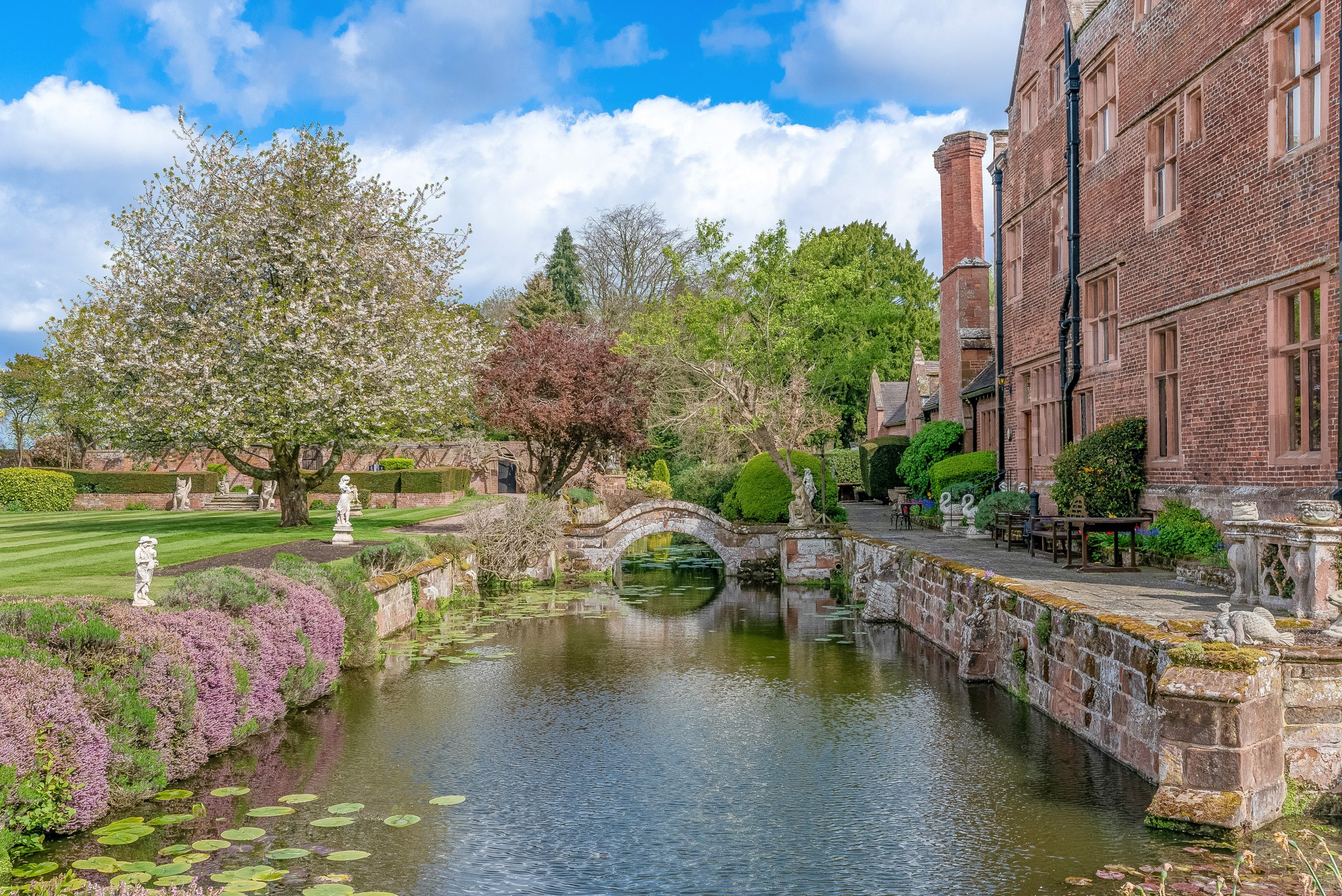
There is also an oak-panelled sitting room and a similar dining room, both of which have carved stone fireplaces; while the luxurious drawing room has large windows overlooking the garden.
Exquisite houses, the beauty of Nature, and how to get the most from your life, straight to your inbox.
To the rear, a remarkable leisure complex, built in 2000, which features a Roman-style indoor swimming pool with a solid retractable floor that rises to create a dance floor.
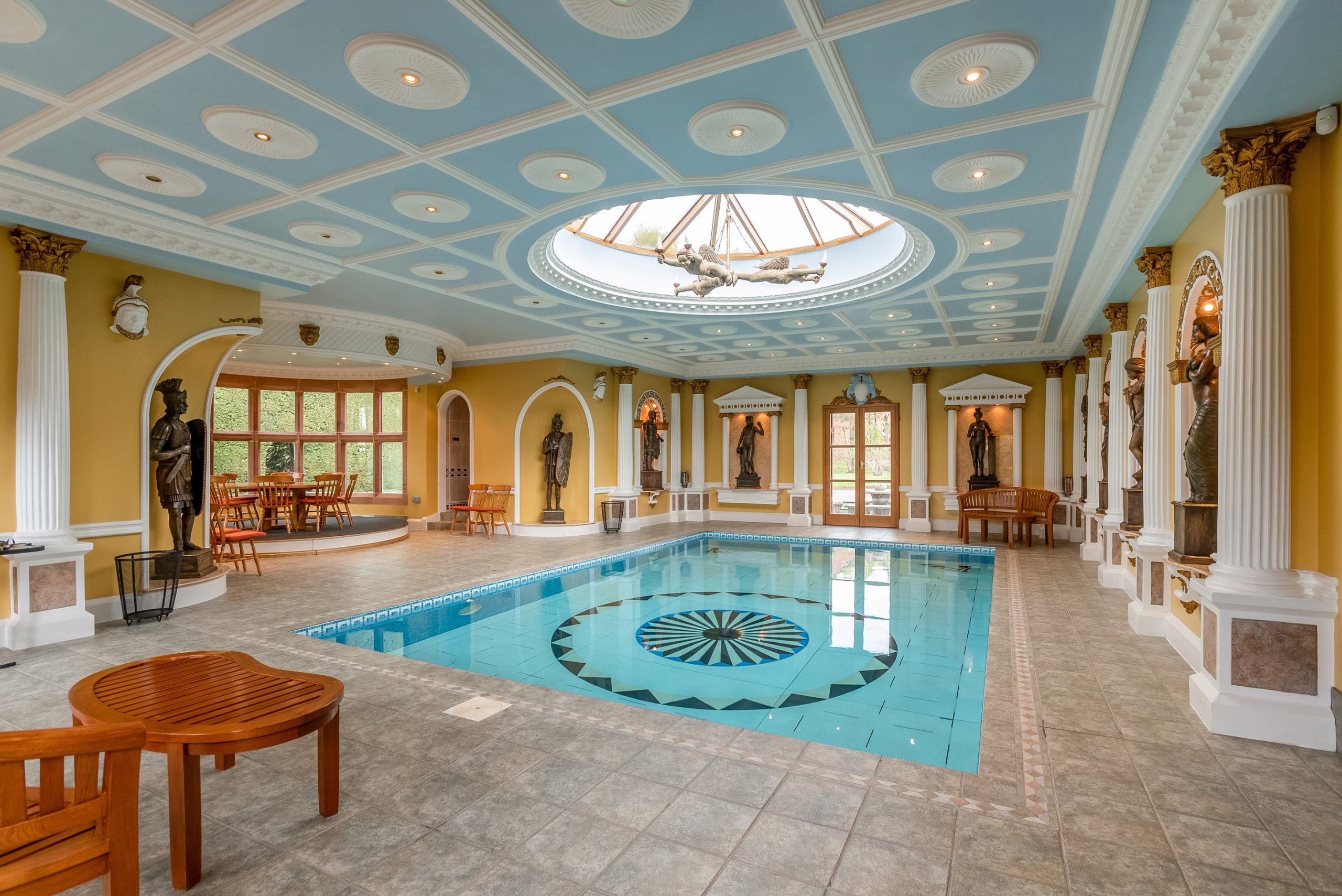
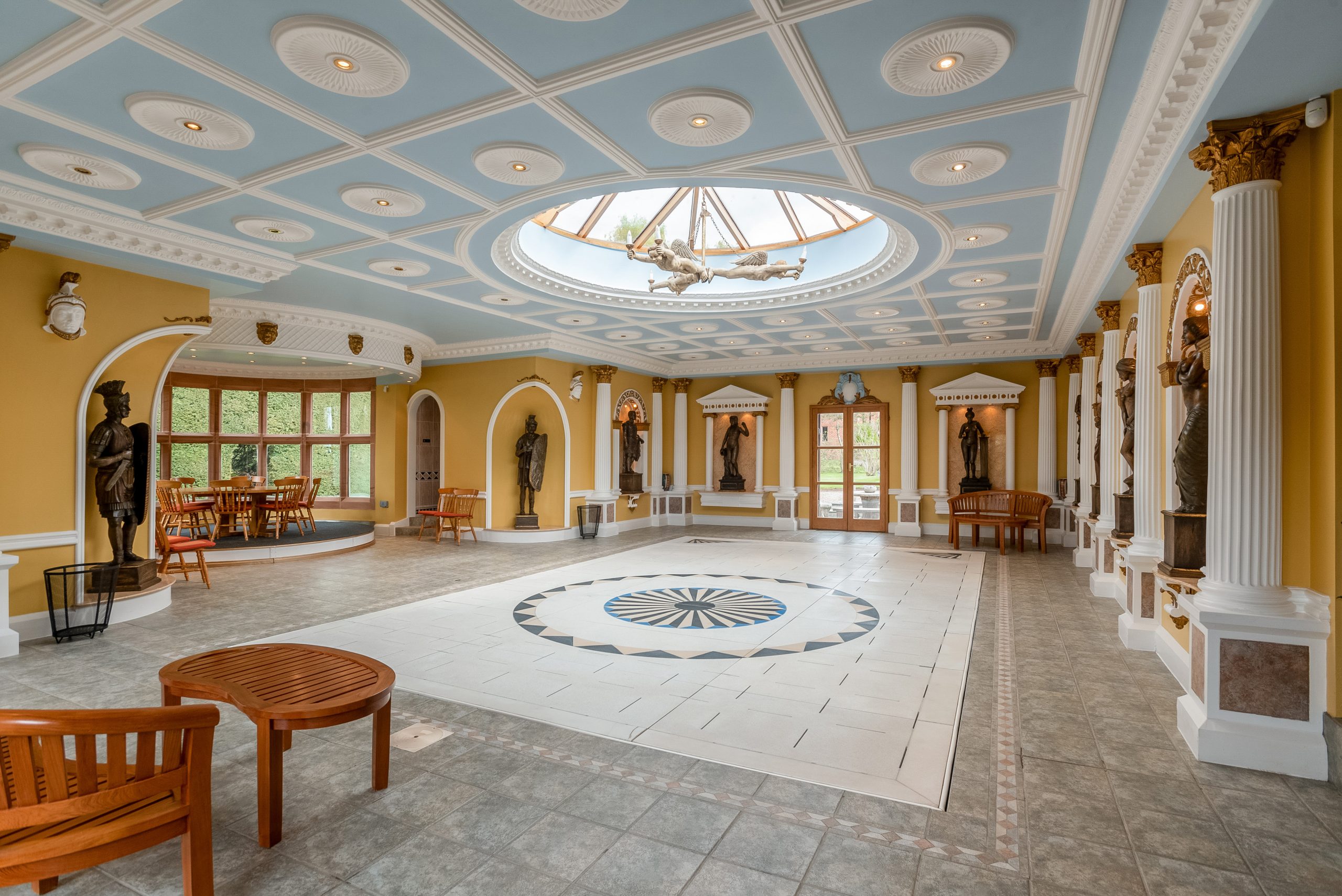
Amazing stuff. As Arthur C. Clarke once wrote, any technology that is sufficiently advanced becomes indistinguishable from magic. We think this counts.
For those looking for even more, the family is also selling Manor Fold, a collection of eight let houses on the edge of the estate. It’s on the market separately as a residential investment portfolio with an excellent rental income, at a guide price of £3m.
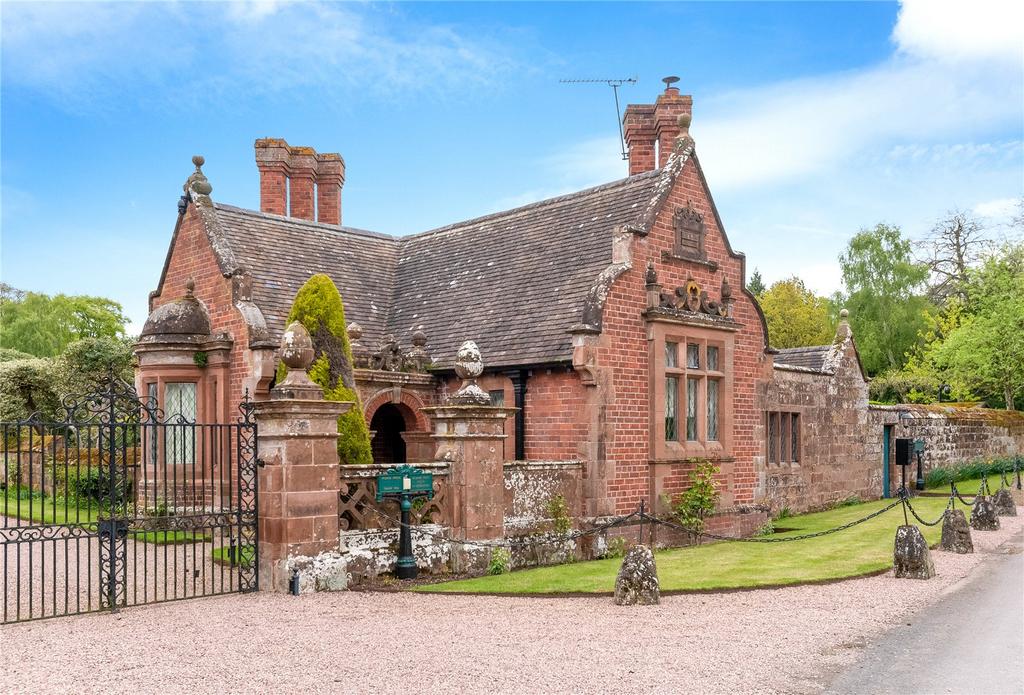
The setting for this house is the ancient parish of Claverley, near Bridgnorth, covers an area of more than 8,000 acres in rural east Shropshire, its eastern boundary abutting the county boundary with Staffordshire. In medieval times, much of the parish was covered by woodland as part of the royal Forest of Morfe, which extended westward to the Severn and eastwards to the village of Claverley.
After the Dissolution, the monastic lands previously held by the Deanery of Bridgnorth in a number of hamlets around Claverley were sold off by the Crown. Over time, successive generations of the new landed gentry transformed their farms into grand country estates, building fine houses and laying out parks and gardens.
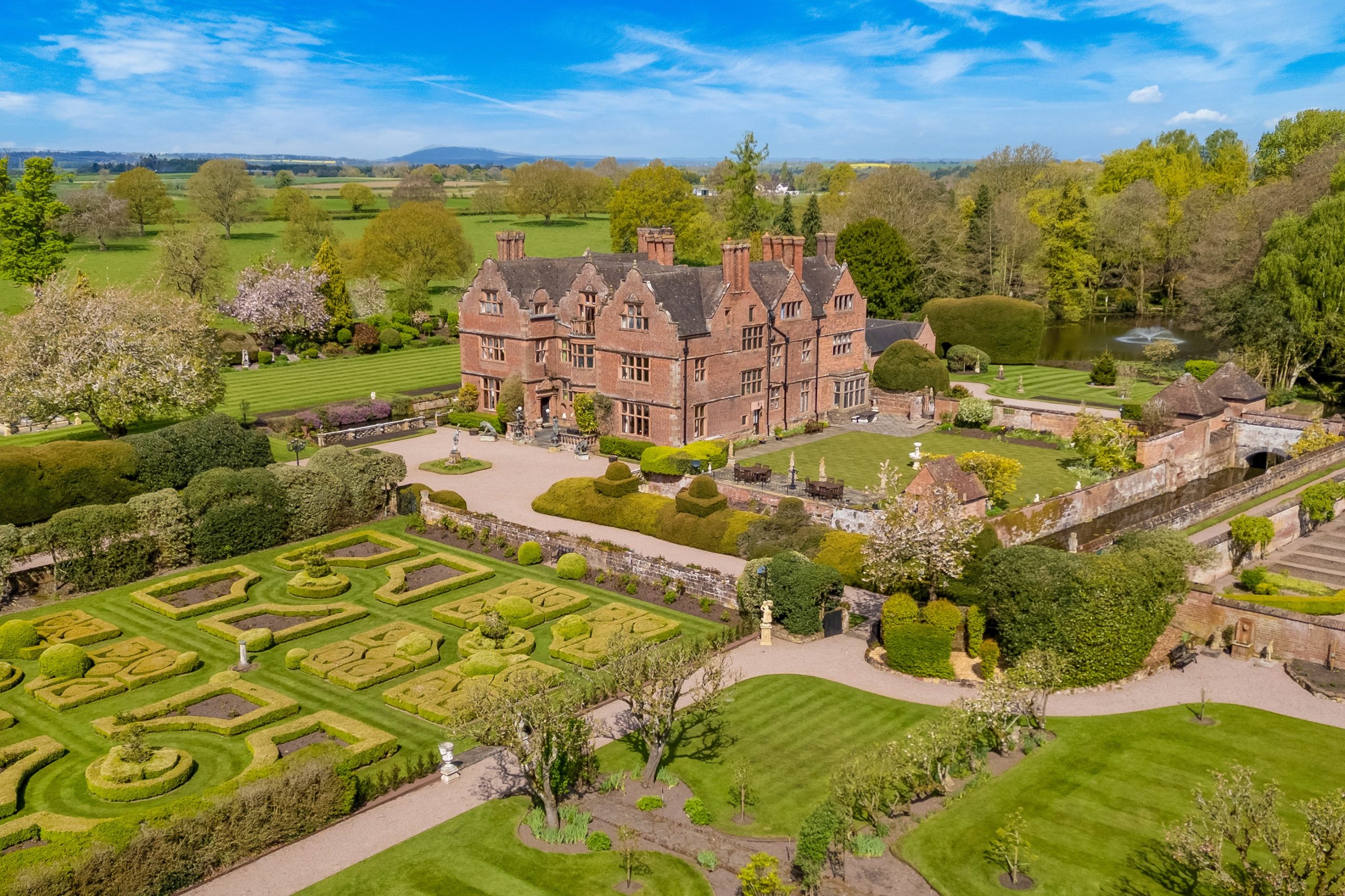
A series of articles by Country Life’s then Architectural Editor, Arthur Oswald (January 11, 18 and 25, 1952), traced the history of Grade I-listed Ludstone Hall, a moated Jacobean house built in about 1607 by the Whitmore family on the site of a medieval manor house annexed to the Deanery of Bridgnorth.
According to Oswald, Ludstone Hall is ‘one of a group of brick-built Shropshire houses where stone is used only for architectural features and windows, and is such a fine and well-preserved example of its time that one would have expected it to be much better known than it is’.
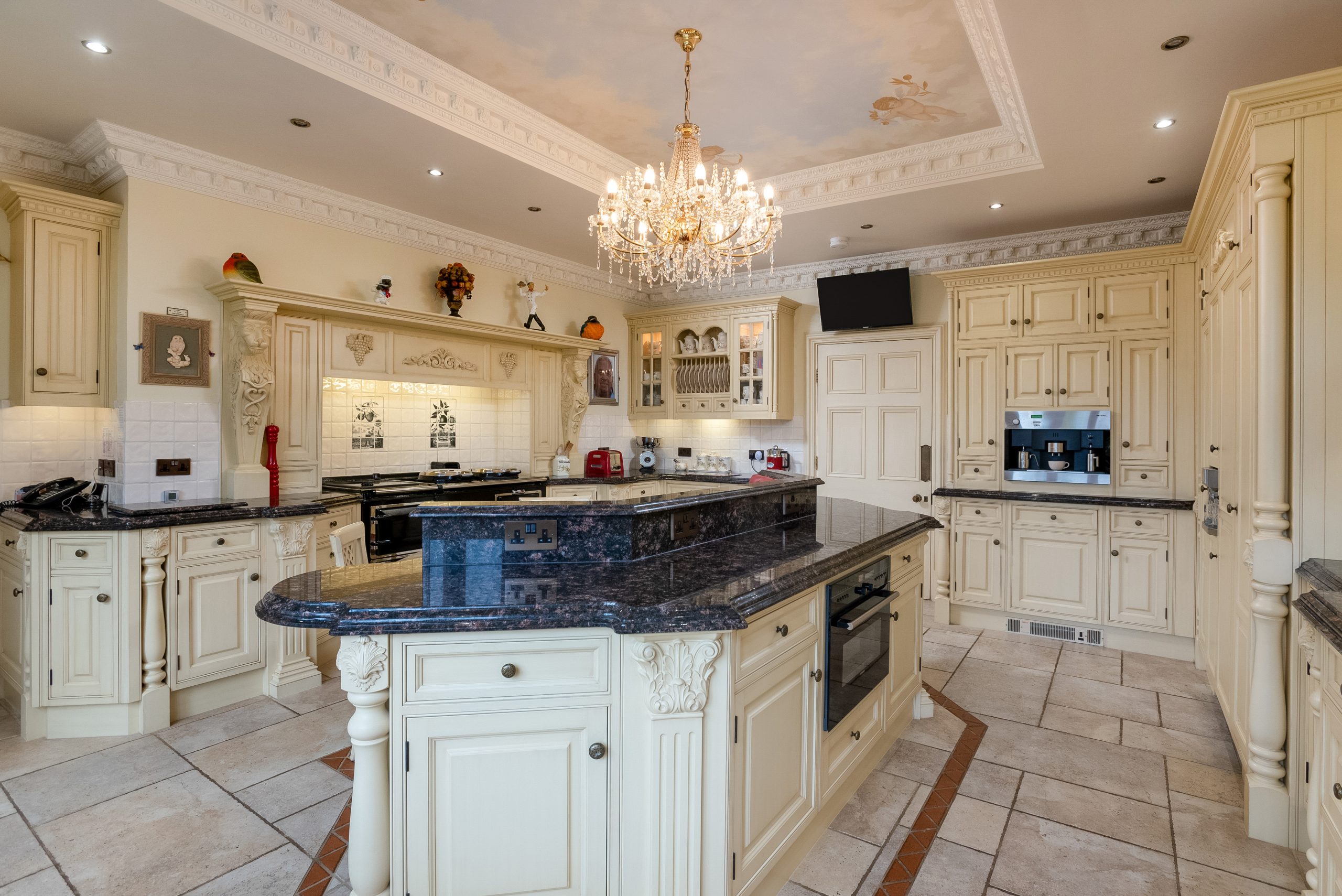
Three reasons are cited for the hall’s remarkable state of preservation: firstly, the fact that, in the early 18th century, it ceased to be the home of its owners and became a farmhouse, thereby avoiding any Georgian changes or redecoration.
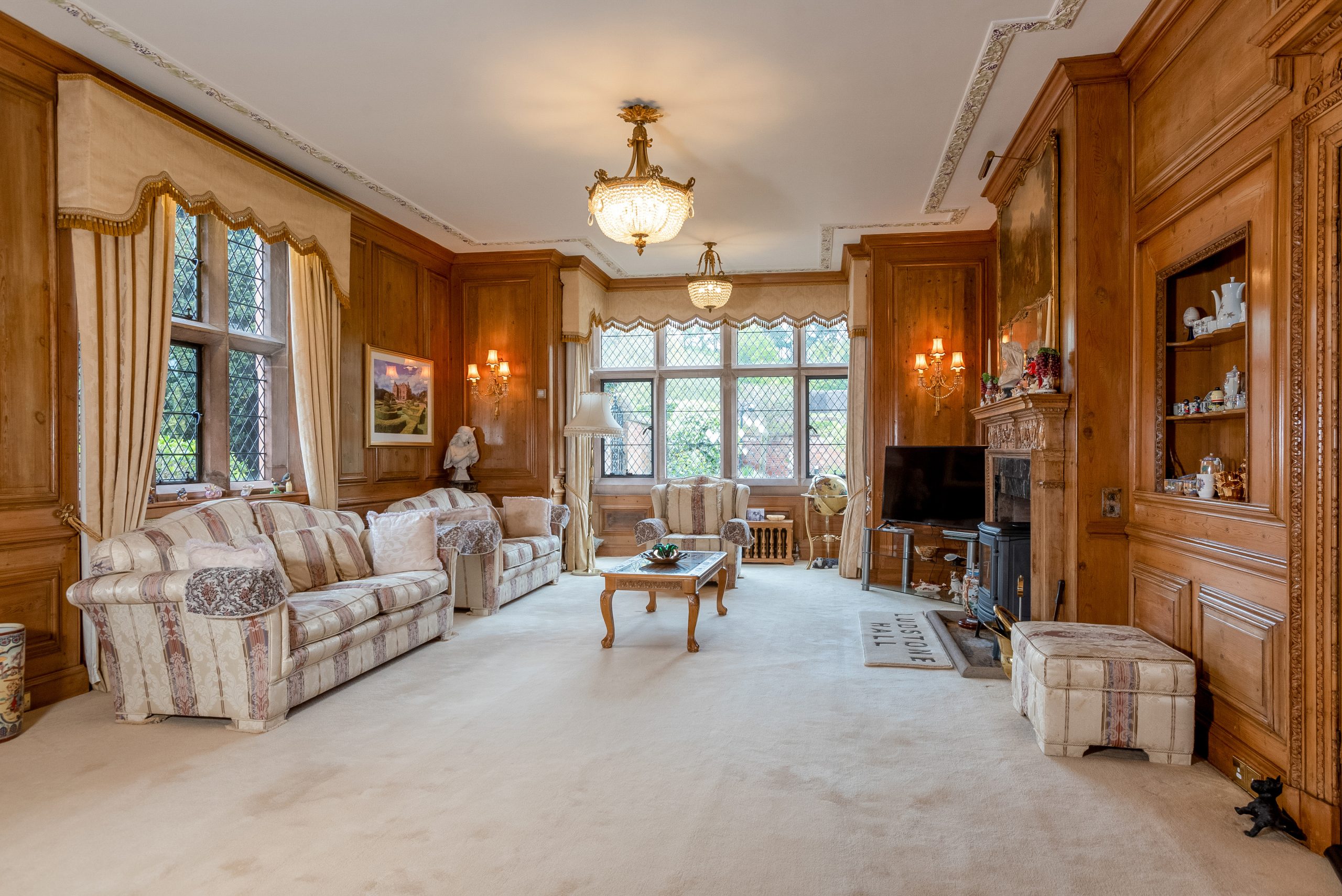
Secondly, having been a farmhouse for more than a century, it was acquired in 1870 by Joseph Round Cartwright, who, in the course of a ‘careful and remarkably sympathetic work of restoration… built the stable block, created the lake beyond the road, built the lodge beside the entrance gate, widened the approach, laid out the gardens, and made a forecourt and carriage sweep by bridging over the moat’.
Ludstone Hall is for sale at £7.75 million — see more pictures and details.
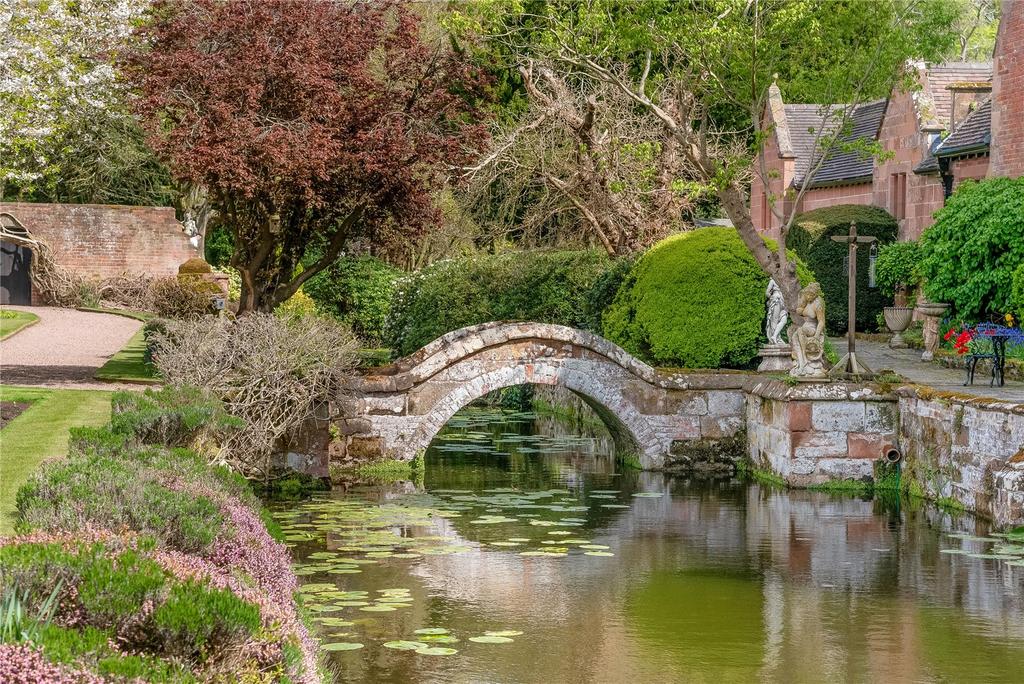
Additional writing: Toby Keel
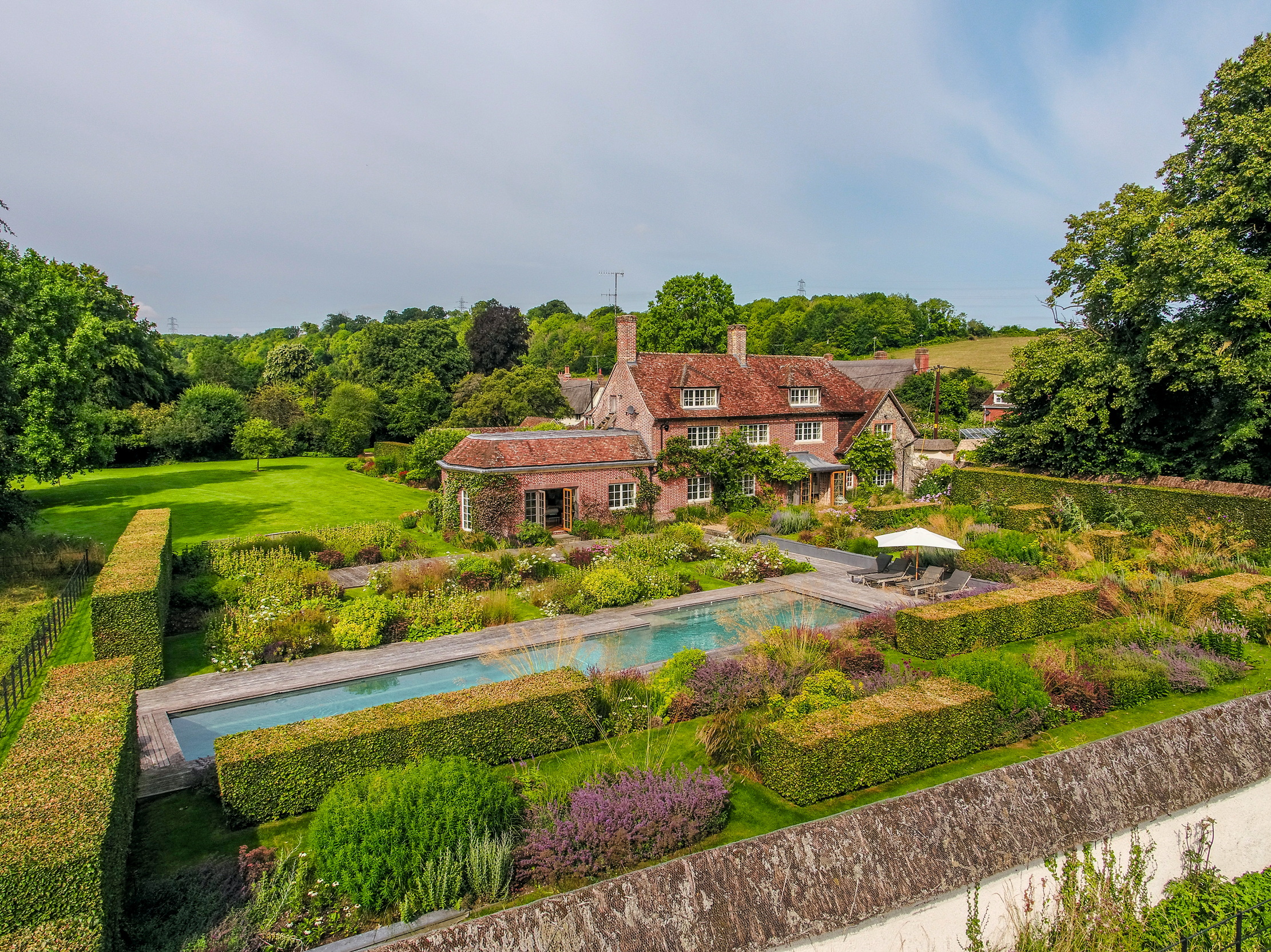
Credit: Strutt and Parker
Best country houses for sale this week
An irresistible West Country cottage and a magnificent Cumbrian country house make our pick of the finest country houses for

